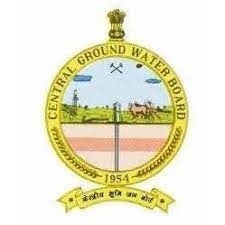Water security in Yavatmal under threat: Study
| Date :21-Jul-2021 |

Staff Reporter :
Improper location, poor operation and maintenance of water harvesting and recharge structures threaten water security in Yavatmal, states a recent study
More than 40 per cent of the check dams constructed in discharge areas and nearly 35 per cent of check dams and percolation tanks in Yavatmal district, which had earned the dubious distinction of being farmer suicide hotspot in the country, are either damaged or have been encroached, finds a recent study by Institute for Sustainable Communities (ISC). In 2018, data from Central Ground Water Board, Nagpur indicated that Yavatmal was one of the districts in Maharashtra where the rate of groundwater decline had been around 4 metres.
Against this backdrop, water security in Yavatmal district assumed more significance. However, the Institute for Sustainable Communities report titled ‘Water Harvesting and Recharge Structures in Yavatmal District: A Status Check’ reveals that water security in Yavatmal district ‘could be at risk’ if steps are not taken to revive and renovate water harvesting and recharge structures. The report examines the current status of water harvesting and recharge structures and measures their effectiveness based on an analysis of hydro-geology of the area. Using various mapping tools, undertaking field visits and interaction with communities, the report has assessed the current state of the structures and their effectiveness in recharging or storing water. Water bodies that have an area of more than 0.3 hectares have been mapped as part of the study. The findings of the research indicate that more than 40 per cent of the check dams have been constructed in discharge areas. Considering that the main role of constructing check dams is to enhance groundwater recharge, their construction in discharge areas ‘does not serve the purpose’, it states. Furthermore, the study highlights that more than 35 per cent of the check dams, and 32 per cent of the percolation tanks, are ‘either damaged or encroached’ upon. Communities have blamed poor operation and maintenance of the structures as a major reason for the current state of these structures.
“The main aspect of the research was to ascertain whether the water harvesting and storage structures in Yavatmal district have been constructed in appropriate locations in order to be effective for groundwater recharge or surface storage. A total of 686 structures comprising 204 check dams, 211 percolation tanks, 175 ponds/farm ponds, 52 water storage tanks, and 44 reservoirs were mapped across the district, with an indication of their location across recharge or discharge areas,” said Romit Sen, Associate Director, Water and Agriculture Programme at ISC. ISC is a global non-profit organisation with a 30-year track record of supporting industry, cities, and communities to plan and implement environmental, economic, and social improvements. The report points out that communities blame poor operation and maintenance of the structures as a major reason for the current state of affairs. Therefore, the study has recommended that a comprehensive plan for repair, renovation and reconstruction of the water harvesting and recharge structures should be carried out in Yavatmal district to ensure long-term availability and sustainability of water resources. The plan should include ensuring maintenance of these structures, involving engagement of Gram Panchayat and village communities concerned. Emphasis should be placed on repair and renovation of check dams and percolation tanks in recharge areas and ponds in discharge areas. “The analysis and findings will help prioritise the revival efforts of various water harvesting and storage structures in Yavatmal,” said Vivek P Adhia, Country Director-India, ISC. It will help decision-makers plan for augmenting water resources in the district, he added, underlining the need for community participation and creating mechanisms for effective operation and maintenance.